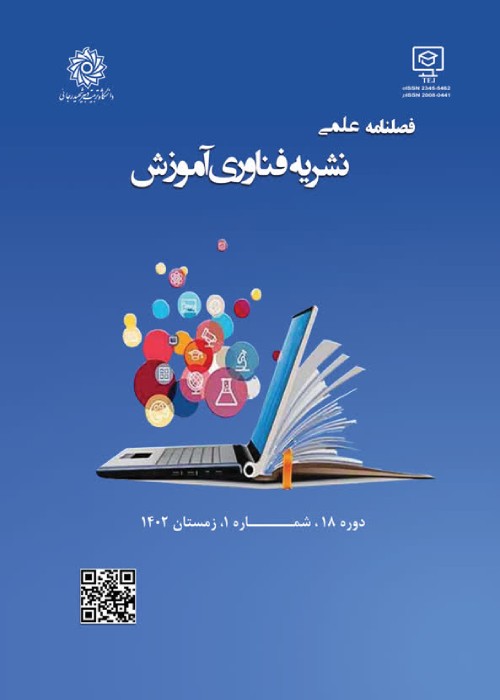The effect of test-based gamification on Exam anxiety, interest in math and learning math lessons of sixth grade students
The purpose of this research was to investigate the effect of gamification-based test on exam anxiety, interest and learning of mathematics lesson of the sixth grade of elementary school students.
The method used in the current research was quasi-experimental with a pre-test and post-test design with a control group, and was applied in term of puropos. The statistical population in the present study included all the male students of the sixth grade of elementary school in Asadabad in the academic year of 2021-2022. Among these, two classes of 17 students were selected through convinience sampling method and were randomly assigned to two experimental and control groups. During eight training sessions, after the end of each session and the teacher's training in the virtual classroom, the test was conducted normally for the control group, but for the experimental group, the test was conducted as gamification. In this way, questions were designed based on the content and topics that were taught in each session and uploaded to the Kahoot platform. After the end of each session, the teacher provided the link to the students, the students entered Kahoot and answered the questions. While answering the questions, they could see their status compared to other students. Students chose avatars and competed with others in an attractive and multimedia environment. Also, the teacher shared the leader board after the exam in the Shad software and the names of the best ones were recorded. In order to collect data, Abolghasmi et al.'s exam anxiety questionnaire, Nemati's math interest questionnaire and a researcher-made learning test were applied. In order to determine the validity of the form and content of the test, the opinions of 12 subject expert teachers were used. For content validity, CVR indices were used, and these values were checked in each question and they were greater than 0.7; so, the content validity of the test was also confirmed. The reliability of the math learning test in the study was obtained using the Kuder-Richardson method, 0.81, which indicated the appropriate reliability of this test. In order to collect data, Abolghasemi et al.'s test anxiety questionnaire, Nemati's math interest questionnaire, and the researcher's learning test were used. Data were analyzed using analysis of covariance
The results of covariance analysis showed that the experimental intervention could not significantly reduce the exam anxiety, or increase interest in mathematics and the learning rate of experimental group students (P<0.05).
According to the results, it can be argued that there is stress and anxiety in the nature of tests and these variables are influenced by various cultural, family and environmental factors, and changing the test process using gamification had no significant effect on the variables of test anxiety, interest in mathematics and learn math. On the other hand, due to lack of internal systems related to gamification, the well-known international system of Kahoot was used, which may be one of the reasons for its lack of effectiveness due to its incompatibility with some cultural components. According to the results of the research, applying the principles of gamification in tests at the elementary level needs to examine different aspects and dimensions that future researches can pay attention to.
- حق عضویت دریافتی صرف حمایت از نشریات عضو و نگهداری، تکمیل و توسعه مگیران میشود.
- پرداخت حق اشتراک و دانلود مقالات اجازه بازنشر آن در سایر رسانههای چاپی و دیجیتال را به کاربر نمیدهد.



